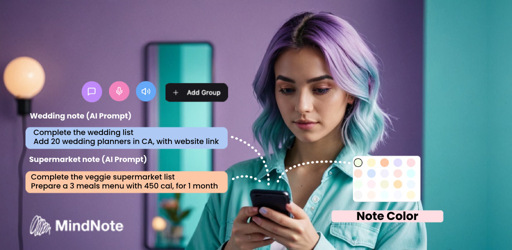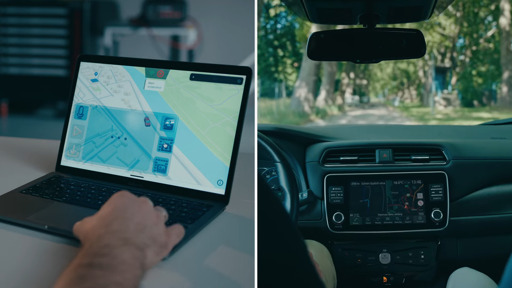Firefox is fine. The people running it are not
-
That's totally false.
One can write using the generic masculine form without making a political statement.
This is not even close to not acknowledge there is non-men in this world.
What you are putting forward is absurd. No one is saying that only men exist anywhere in here.
It isn’t totally false; the claim that the use of the generic masculine is the result of or may have been informed by sexism is based on the fact that it hasn’t always been that way.
Here is a more nuanced and better take:
The generic masculine in modern English is a recent development, as you noted: English used the non-gendered "they" for groups of people and hypothetical/non-specific individuals until prescriptive efforts arose to make it more like Latin. (You can find lots of traces of these prescriptive efforts in modern English: "don't split infinitives" and "don't strand prepositions" are similar rules imposed to make English more like Latin, which are still taught in schools but most people don't really follow.)
-
Firefox still hasn't fixed Bug 1938998 despite me reporting it multiple times. There's a reason why Firefox is almost non existent on mobile. I've been using the internet for 26 years, and have used Mozilla based browsers since 2001, I want them to survive to the next era of the internet, but they are struggling to keep up. Opera and Edge already gave up their engines, Webkit and Blink are basically the same engine with different standards enabled, and Firefox is under 2% on some days on Statcounter. I feel that soon AI based browsers using their own AI-engine will probably take over the internet soon anyway.
I couldn't reproduce the bug. I'm using firefox from the official archlinux repo.
-
There's been investment bubbles, overshooting and disingenuous rent seeking in many economies before. It was temporarily reduced in many western economies by various FDR type policies in the '30s-'60s. The '70s and '80s were just the banks wresting back their freedom to implement market "rationality". And we get the benefits ever since.
People do keep voting for it though so it is hard to argue they're not satisfied. Even the ones who protest vote don't seem to see the "investment" markets as any part of the problem; or as important at all. That's either some pretty effective demagoguery, or some dumb fucking electorate.
The amount of power shareholders hold over every major (American) enterprise isn’t talked about in a way that presents a clear problem between increasingly expensive and shitty services, layoffs, anti-worker practices, political corruption and these shareholder groups. C-suite are part of this group but they’re also afraid of removal via hostile board takeovers and so easily justify acquiescing to shareholder demands.
Perhaps it’s because the same investors hold the same sway over (American) media with the added benefit of using it to brand themselves as exceptional leaders. Lots to untangle there… -
You know you fucked up when even a traditionally hardcore Mozilla fan since the early 2000s like myself has had enuff and recently switched to Librewolf.
Is it good so far?
-
Is it good so far?
Yes! A bit annoying with no built in pw manager but I manage. It did show me how much of the problems which I thought were Gecko related were actually Firefox related, tho.
Basically it's a faster, bluer, and less buggy Firefox.
 >
>
-
As someone who's worked in IT, in corporate and not so corporate companies, it's often not that the support techs don't care. It's that management doesn't. In most companies, I was explicitly told to not care about certain things. If I cared too much and spent too much time on one single problem, to fix it for good, I was told off. As long as users could work in some way, it didn't matter. Even if that included ineffective or costly workarounds. That kind of thinking has and will always rub me the wrong way.
This exactly. Which is why when the tech support didn't want to file a ticket, I pushed for it to be filed. The product managers make the decision, and if they don't see tickets it doesn't exist.
-
Firefox is open source, it’s not going anywhere.
Building a browser engine is expensive. That's why almost all other browser engined other than Apple's have joined the Chromium Borg and gone extinct.
-
Yes! A bit annoying with no built in pw manager but I manage. It did show me how much of the problems which I thought were Gecko related were actually Firefox related, tho.
Basically it's a faster, bluer, and less buggy Firefox.
 >
>
Wdym Librewolf has no built in password manager? It has
about:loginsjust like Firefox -
Yeah, this is part of the new Reaganomics I like to call AIconomics. The goal isn't to produce a good product, the goal to make something flashy that tech billionaires want to throw cash at. It's not unlike crypto. Crypto has literally no actual value yet people are shitting money into bitcoins of every type in hopes that one will hit it big. Meanwhile tech billionaires keep minting new ones to entice new suckers every other week. The tech billionaires want you hooked on AI so you'll give up your private info that they can sell to each other so they can cash in, the software companies are investing their time and resources into making AI LLMs in order to get tech billionaires to give them money. It's a viscous capitalist circle. Only thing that will stop it is heavy regulation. But with Republicans in charge that will absolutely never happen. Trump practically made his entire cabinet out of billionaires and corporate shills. And too many Democrats gave them the thumb up, so don't count of Dems doing a whole lot to stall the big tech chokehold on everything either.
Check out enshittification and the rot economy. I feel like those two terms encompass pretty much what we are seeing these days
-
You know you fucked up when even a traditionally hardcore Mozilla fan since the early 2000s like myself has had enuff and recently switched to Librewolf.
I'm with you. I was using Netscape way back and loved Firefox from its inception, and tried to convince everyone I knew to use it. Earlier this year I finally switched to Waterfox, and I haven't looked back. I tried Librewolf first, and it was great, but they don't have an app and that was a dealbreaker for me. Waterfox feels a lot like older Firefox UI-wise, and I love the tab containers.
-
Building a browser engine is expensive. That's why almost all other browser engined other than Apple's have joined the Chromium Borg and gone extinct.
Remember when Cyanogenmod died and no one thought that anyone would take the reigns?
-
Yes! A bit annoying with no built in pw manager but I manage. It did show me how much of the problems which I thought were Gecko related were actually Firefox related, tho.
Basically it's a faster, bluer, and less buggy Firefox.
 >
>
You should use a third party password manager. You can still add extensions to librewolf.
-
This post did not contain any content.
I have been using the same web browser, in terms of ideology, codebase and heritage, since the release of NCSA Mosaic.
That was 32 years ago. And holy f**ck, that dates me.
Sure, I dabbled around with others. There was the original Opera, back when Netscape cratered and the only other real option was IE. Opera’s tab behaviours made me install Tab Mix Plus for FF, and I still find that extension to be the second-most critically important extension FF has, right after UBlock Origin.
And lately I took a shine to Vivaldi, but I have been weaning myself off of it once I realized that the Manifest v2 shutdown was unavoidable for it as well.
And the only reason why I even have Chromium is as a sandbox for any Google services I access and as a “naked” web browser for those websites who implement malware and spyware in the name of “website security”. Which, of course, also means a majority of websites that are “protected” by CloudFlare’s incredibly hostile anti-user practices.
And of course, I also run forks, such as Librewolf and others, also with the appropriate anti-malware and anti-spyware add-ins. It can be useful having multiple web browsers up at once.
But my main will always be Firefox.
-
One observer has been spectating and commentating on Mozilla since before it was a foundation – one of its original co-developers, Jamie Zawinksi
...
Zawinski has repeatedly said:
Now hear me out, but What If…? browser development was in the hands of some kind of nonprofit organization?
In my humble but correct opinion, Mozilla should be doing two things and two things only:
- Building THE reference implementation web browser, and
- Being a jugular-snapping attack dog on standards committees.
- There is no 3.
This makes sense to me. I initially thought everything that Proton does, that should have been Mozilla. They should have been a collection of services to compete with like O365 and Google One. So I didn’t see a problem with Mozilla selling a VPN, even though if I remember right it being just a Mullvad rebrand.
Right now to me it looks like Proton is the closest mostly missing a web browser and a more cloud office offering.
Mozilla functioning more as the reference browser for others to finish packaging and supporting sounds good to me because Mozilla doesn’t seem to be great at attracting general users or even picking what businesses to try and break into.
Linux kernel devs do Linux kernel development and distros small and large do the integration with everything else needed for an operating system, branding, support, etc. Sounds like Mozilla should have been the core devs for a number of reference software projects. Firefox browser engine. Maybe an equivalent to Electron based on Servo. Shouldn't have dropped Rust and been the steward for the reference Rust compiler. Could have been the steward for FirefoxOS/KaiOS/etc. Support PostmarketOS maybe.
Linux foundation stewards or contributes to all sorts of software projects not just the kernel but they're all pretty much things that are relevant for users of Linux operating systems. Mozilla could have found some software centric focus that in some way came together thematically. I would guess privacy focused browser and software services
Markup pro tip: to have multiple separate lines appear as a single large block quote, insert the quote signifier (>) into the blank newlines between them as well.
so this
is one giant
block quote
despite the newlines.
-
Wdym Librewolf has no built in password manager? It has
about:loginsjust like FirefoxI guess it does. I heard it didn't before switching, and it isn't enabled by the default so I just assumed.
-
I'm with you. I was using Netscape way back and loved Firefox from its inception, and tried to convince everyone I knew to use it. Earlier this year I finally switched to Waterfox, and I haven't looked back. I tried Librewolf first, and it was great, but they don't have an app and that was a dealbreaker for me. Waterfox feels a lot like older Firefox UI-wise, and I love the tab containers.
Librewolf has tab containers as well. So does Firefox. Unless Waterfox works differently somehow?
-
You should use a third party password manager. You can still add extensions to librewolf.
I know. Been a bit paralysed by the amount to choose from, tho.
-
Librewolf has tab containers as well. So does Firefox. Unless Waterfox works differently somehow?
Oh... so they do. I guess Waterfox just enabled it by default and I never noticed
-
And what share of the profit should go right in executives pockets? How many employees should be laid off to increase this profit? Is 6 million $/yr enough for a CEO to feed their fucking family?
Its already law that the director/cea etc should earn at least 56k or the same aa the most earning employee.
But if companies wheren’t allowed to exist your job wouldn’t and the internet won’t exist, etc
-
Oh... so they do. I guess Waterfox just enabled it by default and I never noticed
Haha, that's ok. I had the same thing with my claim about pw manager in Librewolf.






